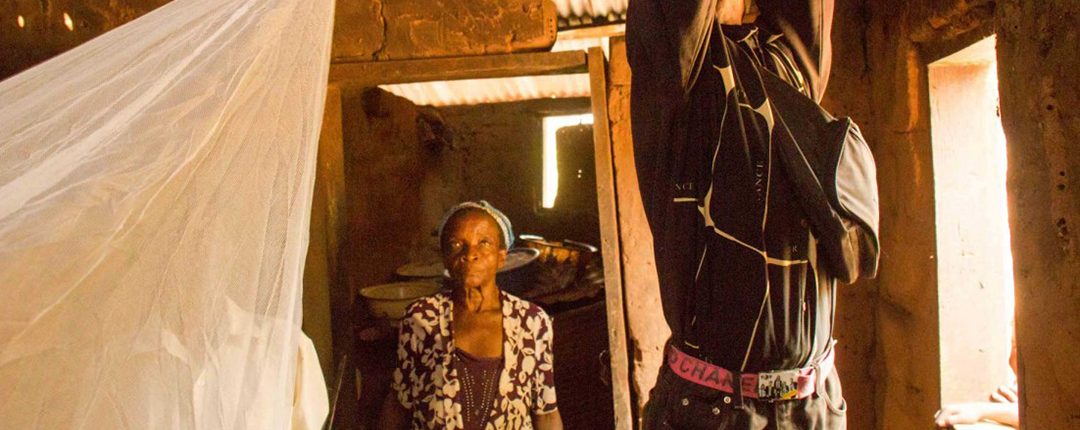The ASSP Project’s pilot bed net distribution in Kabola Health Area in Nyanga was successfully implemented, with over 3,000 nets distributed and hung up in over 1,000 households. The team had planned for a total of two days for the registration and distribution to be completed in Kabola, but as is often the case in the Democratic Republic of Congo (DRC), there were delays. On the first day of household registration, the team found that about half of the community workers (CWs) and Relais Communitaires (RECOs) in the previous day’s training were not yet comfortable with using the cell phones and needed more one-on-one help. In the following days these CWs and RECOs were paired with either a Field Supervisor or another CW/RECO who was comfortable with the technology. Those who were not comfortable with cell phone usage assisted with the actual hanging of the nets rather than collecting data using the cell phones. This in turn meant that fewer households could be done in one day. Despite the set backs, the team was still able to finish the distribution within 4 days.
The utilization of RECOs for phone surveys is one of the most challenging aspects of this project, and it is also one of the most crucial aspects to the project’s success. The community must be engaged and it is the CWs and RECOs who encourage and engage the community at large to accept and use the nets.
The benefit of doing a pilot distribution is to find out what works and what doesn’t. The information being gathered in Nyanga will help plan a successful distribution for the next 11 health zones that the team will visit beginning in September. In the next 11 health areas of Nyanga, the team will recruit far more CWs and RECOs and only those who demonstrate a thorough grasp of cell phone usage will be used for actual data collection and the rest will aid in hanging nets.


Recent Comments